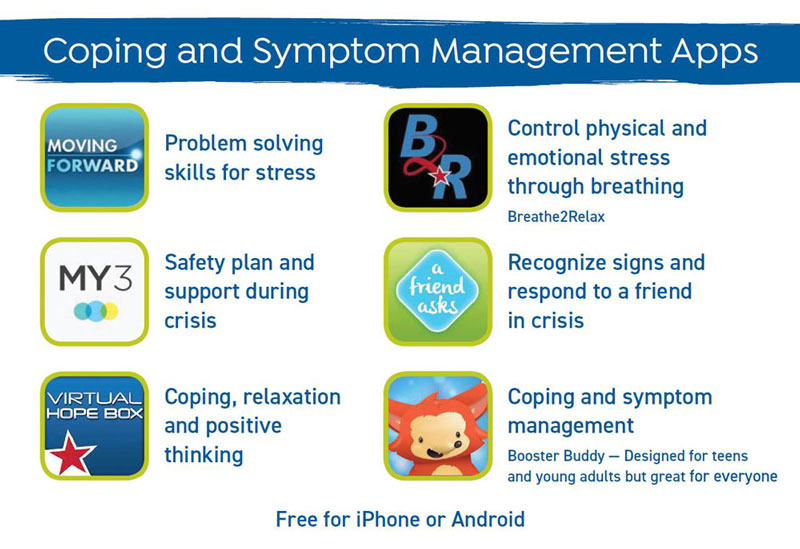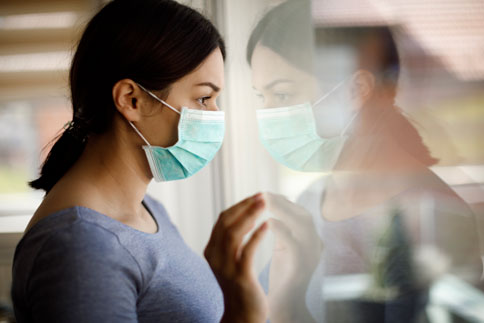September is Suicide Prevention Awareness Month
September is Suicide Prevention Awareness Month. Typically, September means the end of summer and a return to established routines. There is a comfort in normal routines and rhythms, but as we continue to deal with COVID-19 these transitions are disrupted for many of us personally and professionally.
COVID-19 presents challenges to our community’s mental health related to economic issues and unemployment, social isolation, increased physical illness and national anxiety. Those with psychiatric disorders might experience worsening symptoms and others may develop new mental health problems — especially depression and anxiety.
Suicidal thoughts can affect anyone regardless of their age, background or gender. These thoughts may occur due to untreated mental health conditions or challenging circumstances. The National Institute of Health estimates that 10 million adults experience suicidal thoughts every year. While not unusual, thoughts of suicide are not normal and should be taken seriously. If you or someone you care about are having suicidal thoughts, it’s important to receive professional help as soon as possible.
It’s important to know that suicidal thoughts can be treated and there is support to help you, or someone you know, overcome struggles and renew hope.
Learn and Share Suicide Prevention Information
Take the time this month to learn how to recognize the warning signs of suicide, ask the question and connect someone at risk to care. If you or someone you know is having thoughts of suicide, you can reach out for support from your local crisis hotline or the National Suicide Prevention Lifeline at 800-273-8255. Please see additional support resources at the bottom of the page.
CentraCare’s Suicide Prevention program will be hosting two virtual Suicide Prevention trainings this month. S.A.V.E. Suicide Prevention Gatekeeper training teaches you how to recognize the warning signs of suicide, how to respond and connect someone to help. Just like CPR taught community members to keep people alive until they could connect them to a health care professional, S.A.V.E. suicide prevention training does the same for those at risk of suicide. The more trained responders we have in our Central Minnesota communities, the healthier and safer we will all be. Please click here to register.
Just like conversations about drugs and alcohol, “Talk Early Talk Often” also applies to conversations about suicide. The Society for the Prevention of Teen Suicide has many resources to help parents, educators and teens learn more about how to prevent suicide experiences by having open and direct conversations.
If you are interested in learning more about suicide prevention, CentraCare’s Suicide Prevention Program Manager can provide training for your workplace, school, or community group. Please contact Lisa Bershok at 320-251-2700, ext. 23793.
Additional Support Resources
- Crisis Text: “MN” to 741741
- Minnesota Peer Support Connection Warmline: Certified Peer Specialists to listen, provide support and referrals seven nights a week from 5 p.m. to 9 a.m. at 844-739-6369
- The Trevor Project: 866-488-7386
- Trans Lifeline: 877-565-8860
- Veterans Crisis Line: 800-273-8255, then press 1
- MN Farm & Rural Helpline: 833-600-2670, ext. 1
- Serve & Protect Crisis Line: 615-373-8000
This blog post is not monitored. If you or someone you know is having thoughts of suicide, please contact the National Suicide Prevention Lifeline at 800-273-8255.
Helpful Apps

